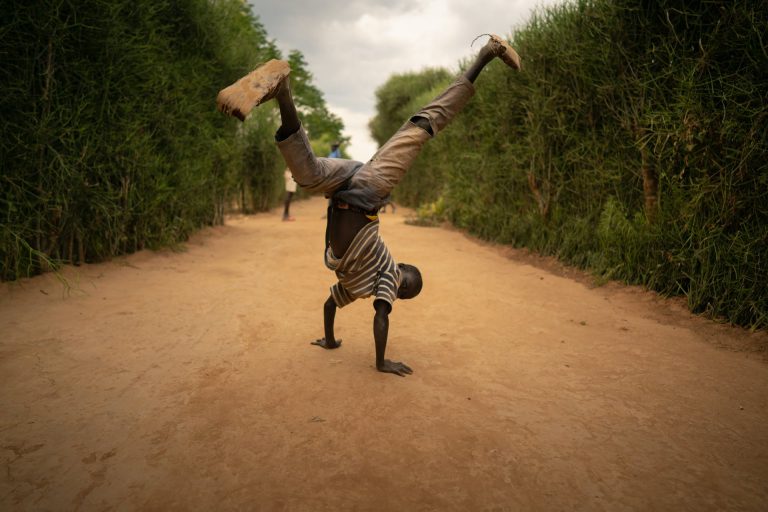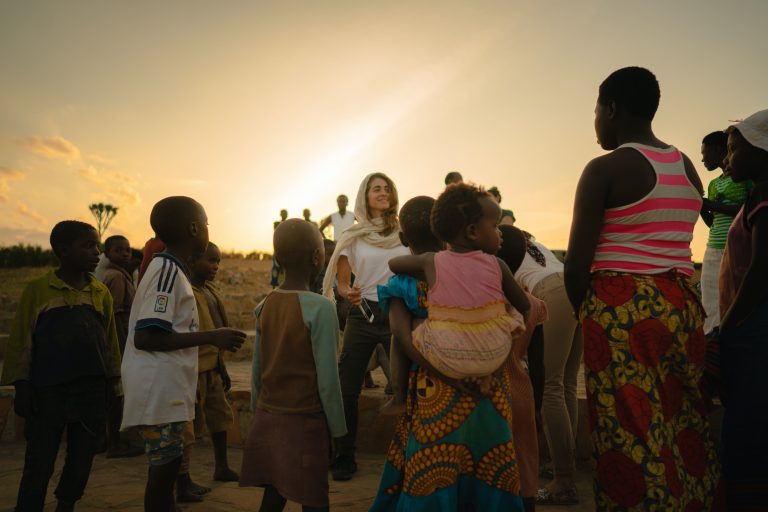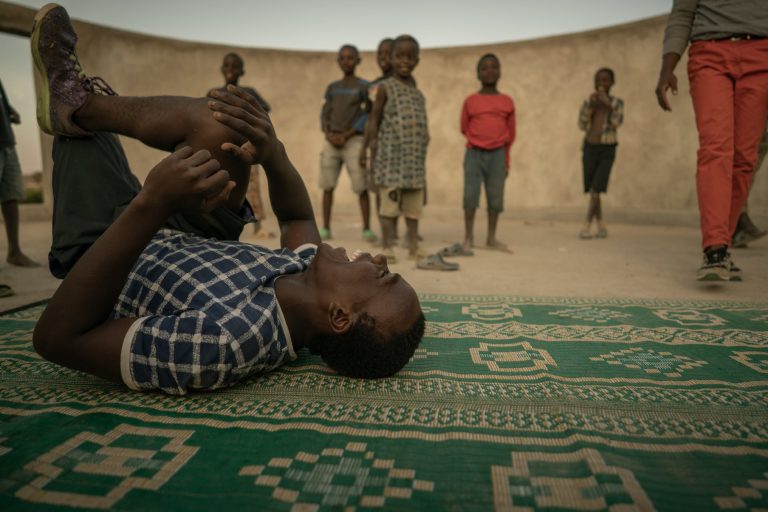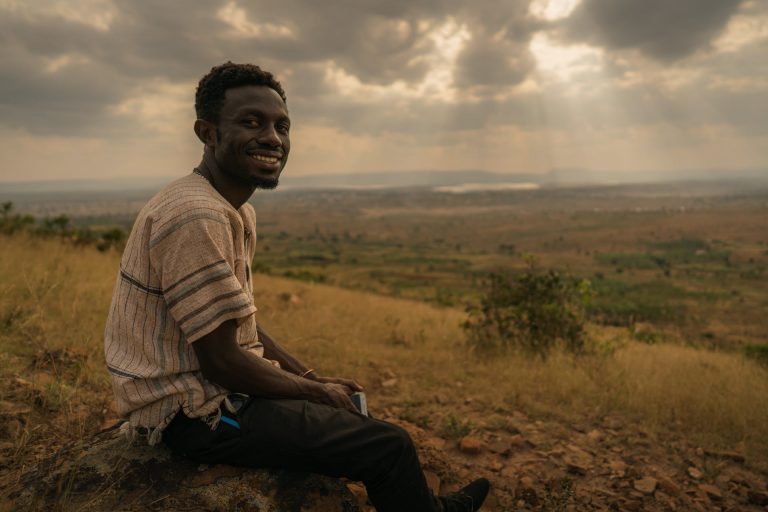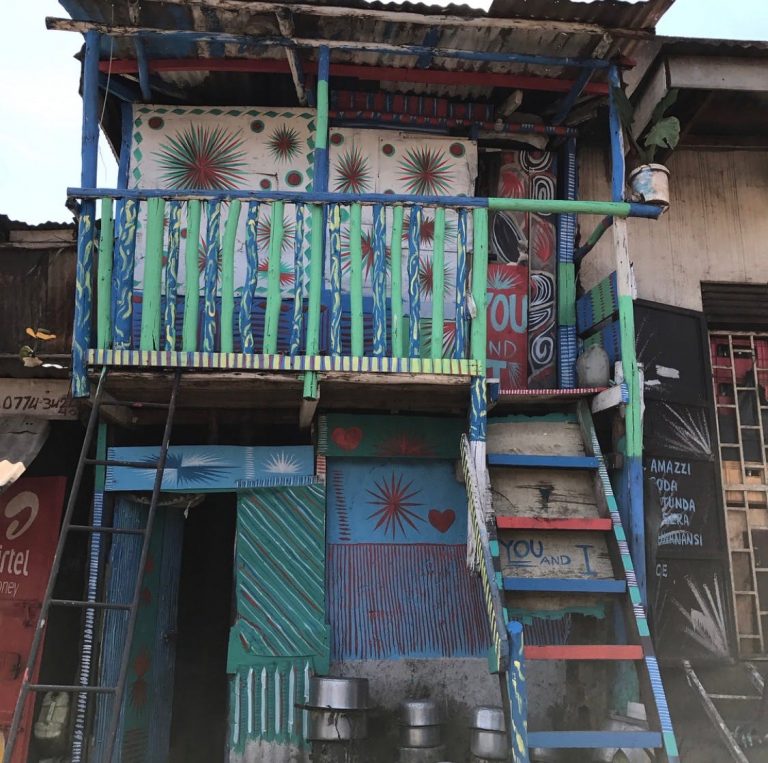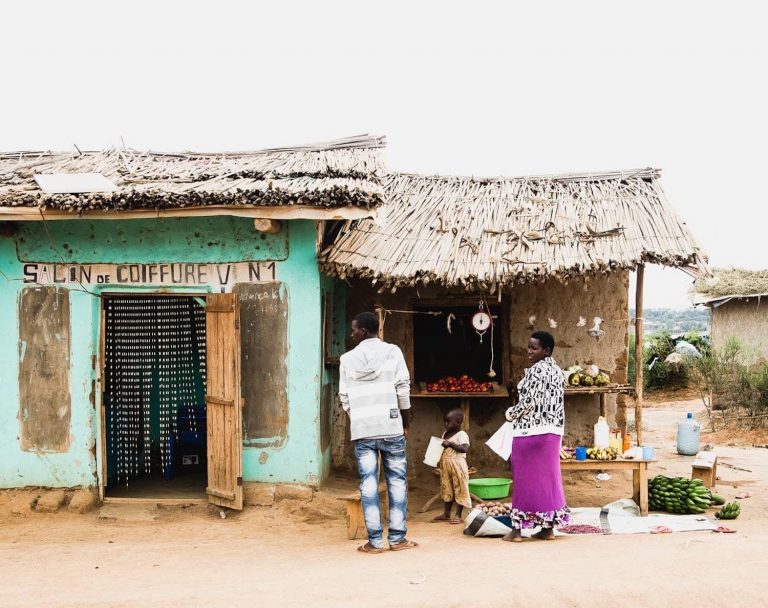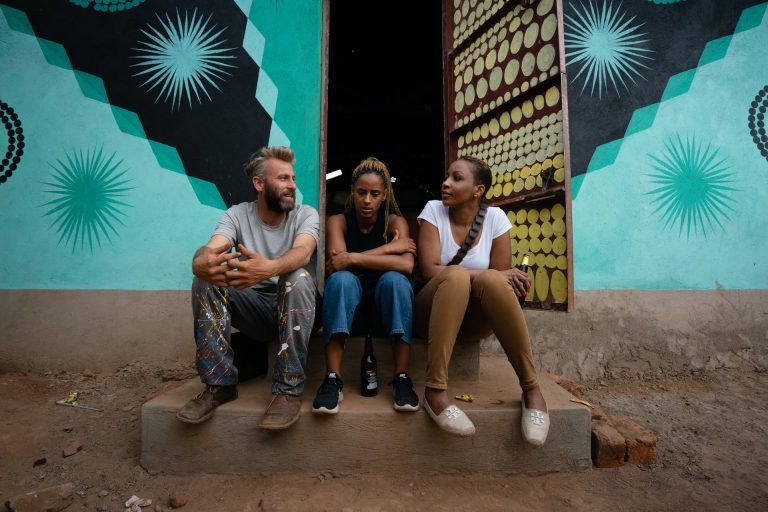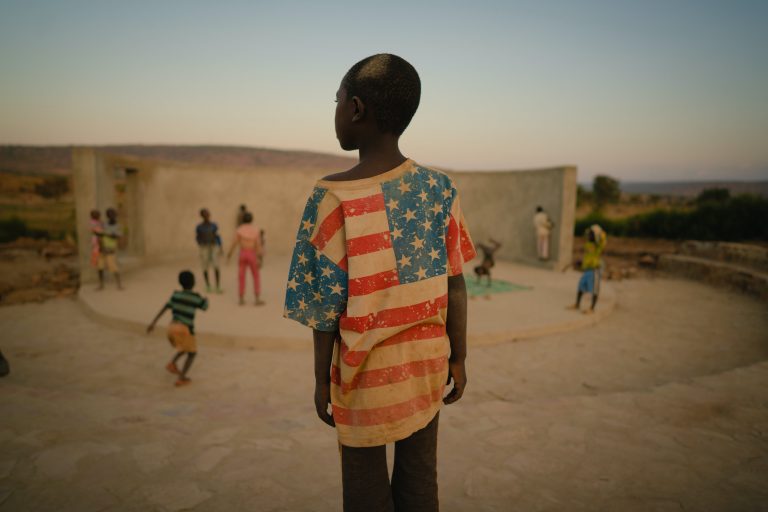Our team at Habitas Rise has just returned from a week-long visit to the Nakivale refugee settlement in Uganda, where 170,000 refugees currently reside.
We landed in Kampala on the first evening and gathered to drive towards Nakivale. It was approximately a seven-hour drive. Though the drive was smooth, we ran into an unexpected issue, as only NGO’s and people authorized by the office of The Prime Minister are allowed access to the camps. We were texting with the office of the Prime Minister, but they said we still needed official approval.
About an hour and a half before getting to Nakivale, we stopped in a small town to buy mattresses and other essentials for the stay. We bought sweets and soccer balls for the kids too. There’s no security when you arrive, but it’s very obvious upon entering that you’re an outsider. The only cars you see driving around are official UNHCR cars. One of my first impressions was how incredibly green the camp is, I was expecting Nakivale to be some forbidden city covered in dust, but was actually really surprised. It was incredibly beautiful. Though the camp was green, it wasn’t clean. There was for sure a lot of trash, which brought another issue to my attention.
Upon entering the camp we met Opportunigee, a local group of entrepreneurial refugees that have built a community center in Nakivale. What’s really interesting is that the UN has built multiple community centers but they’re all empty. NGOs build these facilities for refugees, but don’t engage them in any way or ask them what they need… therefore what these centers look like are just really empty facilities. On the other hand, the energy we found in Opportunigee was really quite special and we are glad to be able to support their efforts on the ground.
What our team at Rise has been doing in Nakivale is identifying and working with local entrepreneurs by leading with culture. And by leading with culture the team can come in and organize community events and gatherings to create an opportunity for connecting. The first thing that we donated as HABITAS was a sound system and a projector.
As RISE we’re able to identify and meet incredible people that stand out within the community, and those are also the people that we end up working more closely with. I think one of the biggest problems that happen often with larger organizations is that they rarely ask people what they need. They don’t want to collaborate and connect with individuals. That’s the difference with our approach. By connecting with people ourselves, we’re able to really find out what the needs of the community are.
In the end, we are just people helping people, and entrepreneurs trying to help entrepreneurs. This was one of the things that the Prime Minister really valued when he finally met us. He found our approach refreshing and welcoming because we were there as entrepreneurs, as people who want to make a change and empower each other. What I was also struck with was how positive and happy everyone in the camp was. I often ask myself how people living in dire conditions, with no electricity, completely isolated from the rest of the world can maintain optimism. But once you start talking to these young people you realize how everyone has an overwhelming and humbling story.
One kid I was chatting with was in a town with his little sister and all of a sudden trucks with gunmen arrived and started to shoot. His friends left and right were dropping and dying. When that happens you don’t run home. You don’t run to grab your passport, grab your wallet, pack your bags and then figure out what you’re doing. You run for your life. And he grabbed his little sister and started running. This story for them began two years ago and that’s how they ended up in Nakivale from Congo.
I’d ask where their parents are and they would say “we don’t know where our parents are. We tried to call them. But their phones stopped working. God bless they’re alive, but we have no idea where they are.” And I asked, “now what are you guys going to do?” They would say things like “We are optimistic for the future. We have no work. But we want to work.”
What’s very interesting to me is their perspective. They don’t think of themselves as refugees. Being a refugee doesn’t define who they are. Being a refugee is, at the end of the day, how they look at a period in their lives that they have to go through. And they hope that in the future they’re no longer refugees. That’s something that we, or at least should say I, as a person, really have to get my head around. It shifted my perspective.
The point is that they look at this situation as a temporary point in their lives. And all those stories are different. There were another two brothers who are gay and were kicked out of their village in Congo by their parents because of that. They ran and ended up in Nakivale. You can imagine … a refugee as someone whose family has expelled them because of their sexual orientation. It really puts a lot of things into perspective. Every single person, every single adult in refugee camps has their own story.
Nakivale is unique. You have 12 different nations coming and living together in real harmony. There’s great street food, though there’s no real industry, but there’s sections where people cook and eat and share. It’s all divided in sections by country, so you have Little Congo, with the Congolese, you have the Sudanese, the Rwandans. Each one has their own culture, they dress differently, but they coexist. You also have the Albinos, who have also been expelled and thrown out of their home countries. At Nakivale, kids mix and play, everybody lives in harmony.
This is what Rise is here to do. We’re trying to educate people and shift this skewed perspective the world has on the refugee crisis. Even more so, we want to engage minds and motivate entrepreneurs to empower and help young people in camps by creating jobs, teaching skills, and helping them get integrated into society. We are excited to share that we now have permission from the Prime Minister to do our work. We no longer have to sneak into Nakivale. We no longer have to sneak in with security guards. We now have easy access into the refugee camps. We can work closely with the other NGOs and really make an impact.
The second project in Nakivale that HABITAS started to fund is called Uhuru Village, which means freedom. Uhuru is a piece of land that we donated to Nakivale in order to create a space for the community to come together. We are building an amphitheater like in Ancient Greece. The thought process there is that in Ancient Greece and Rome the center of a city used to be a meeting place. So right now, we’re building our own city center in Nakivale for people to meet, with an auditorium for 2,000 people. There’s a stage where people can have conversations or perform. There will be another area for creativity and a school for learning. There will also be an area dedicated to farming.
We’re working closely with local entrepreneurs on the ground, to support their ongoing efforts as well. We want to tell stories and bring the community together through shared experiences. It’s a more direct approach that we believe works better than giving money. If we get it right in Nakivale, we can roll this out across the whole world.

